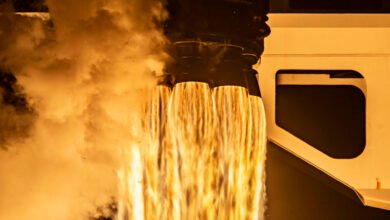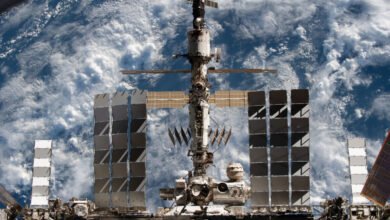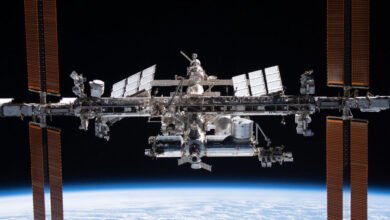Russia’s Surprising Charm Offensive Toward NASA Explained

▼ Summary
– NASA and Roscosmos leaders had not met face-to-face since October 2018 until Roscosmos Director General Dmitry Bakanov visited the U.S. this week.
– The visit included viewing the Crew-11 launch and meetings with NASA’s human spaceflight leaders, though NASA provided minimal coverage.
– Bakanov and Acting NASA Administrator Sean Duffy discussed extending ISS operations until 2028 and deorbiting by 2030.
– Duffy emphasized continuing U.S.-Russia space cooperation despite geopolitical tensions over Ukraine.
– Russian state media TASS extensively covered the meetings, highlighting the ISS partnership’s future.
Despite political tensions between the US and Russia, space collaboration continues as Roscosmos chief Dmitry Bakanov makes a rare visit to NASA facilities. This marks the first high-level meeting between the agencies’ leaders since 2018, signaling ongoing cooperation in space even as terrestrial conflicts persist.
The recent visit included stops at Kennedy Space Center for the Crew-11 launch and Johnson Space Center in Houston, where discussions focused on the future of the International Space Station (ISS). While NASA remained quiet about the meetings, Russian state media provided detailed updates, revealing key agreements between the two space agencies.
Bakanov confirmed that both sides intend to extend ISS operations until 2028, with deorbiting planned for 2030. He emphasized the importance of NASA’s acting administrator, Sean Duffy, reaffirming this timeline. The talks reportedly went smoothly, highlighting a shared commitment to maintaining the station despite broader geopolitical strains.
Duffy acknowledged the challenges but stressed the value of preserving partnerships in space. “We have strong disagreements with Russia on Ukraine,” he said, “but we also find areas where cooperation is possible, like the ISS. Even in difficult times, we don’t abandon these relationships. Instead, we keep working together to advance space exploration.”
The visit underscores how space remains a rare diplomatic bridge between the two nations. While political relations have deteriorated since Russia’s invasion of Ukraine, joint missions and ISS operations continue unaffected. This pragmatic approach ensures that scientific progress isn’t derailed by terrestrial conflicts, keeping the door open for future collaboration in orbit and beyond.
Bakanov’s trip may signal a shift in tone from Roscosmos, which under previous leadership had taken a more confrontational stance. His engagement suggests a renewed focus on maintaining critical space partnerships, even as both nations navigate complex political dynamics on Earth.
(Source: Ars Technica)





